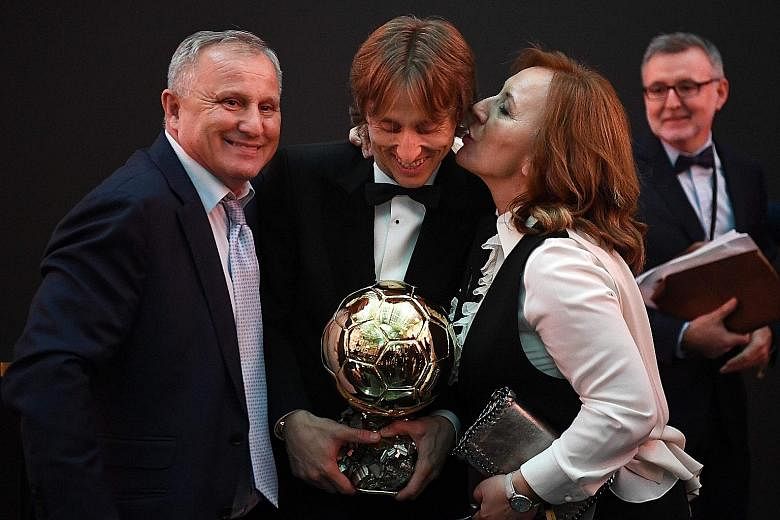GENEVA • A small country with a modest footballing infrastructure, Croatia has consistently churned out world-class players and performed well at the top level.
Its footballing success, which culminated with the team reaching the final at this year's World Cup in Russia, left many observers asking the question: How does it do it?
The secret may lie in Croatia's approach to coaching at grassroots level, and an emphasis on producing players who can think on their feet, according to Boris Kubla, a top official from the Croatian Football Association's coaching department.
He said that what the country of 4.2 million people lacks in facilities, it makes up by providing top-quality coaches and staff at all levels.
"Our players are raised in conditions at the clubs which are not so good - we don't have good facilities or infrastructure," he told Reuters. "But we invest in a good education for coaches."
All coaches in the country have to have a Uefa licence and are paid, even at junior level. When clubs and academies cannot afford to pay for staff, the local city council often chips in. "In Croatia, everyone has a licence and everyone gets some financial benefits. Why? Because we want them to do a good job," Kubla said.

Croatia joined Fifa in 1992 following the break-up of the former Yugoslavia and it has missed only one World Cup - in South Africa in 2010 - since entering the competition for the first time in 1998.
In addition to reaching the final this year, the team were semi-finalists in 1998 and twice European Championship quarter-finalists.
Dozens of Croats play in the top leagues around Europe and Real Madrid midfielder Luka Modric won both the major Player of the Year awards this year.
Ivan Rakitic (Barcelona), Ivan Perisic (Inter Milan) and Mario Mandzukic (Juventus) are also well-known players among fans.
Kubla added that much of the structure had been inherited from the former Yugoslavia, which was itself known for producing an abundance of technically gifted players.
"These structures have been the same for 30 years, since before independence, but we are now more focused on our own country and our own possibilities to develop our players into top players," he said.
Meanwhile, coaching methods emphasise the importance of tactical awareness in players.
"The tactical thinking of the player; this is the main aim we want to develop in our football schools and our national team. We don't want just robots," said Kubla.
"Today's players need to know how to react under pressure, against better opponents. If we have just drills in training, that leads to automation and players don't think about why they are doing that.
"Players must be able to think."
Croatia's success thus far has drawn comparisons with Iceland, which also puts great emphasis in grassroots coaching.
The Iceland team remarkably made it to the quarter-finals of Euro 2016 but exited at the group stage of this year's World Cup.
Kubla rejected the idea that Croatia had benefited from having a so-called golden generation of players, saying more will be rolling off the production line in years to come. "It is one player one year, three players next year, four players next year," he said.
"For the last (Nations League) game against Spain, there were some players from the Under-21s, so several young players are coming into our national team.
"There is also a football mentality (in Croatia). We live for football, we grow up with football.
"When we came back from Russia, there was a national explosion of happiness on the streets, in every city, every town, every place. That can only happen in a country which lives for football."
REUTERS

